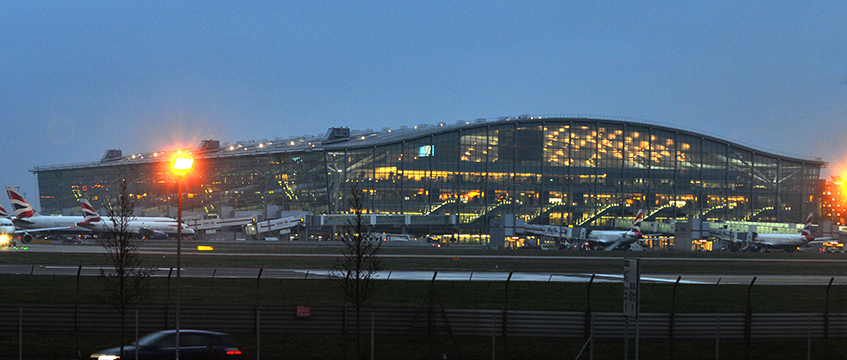We are all aware of the relevance of competition law in the context of corporate transactions such as one large company taking over another – for example, the proposed Asda and Sainsbury’s merger recently made the news as the subject of an in-depth review by the Competition and Markets Authority.
However, competition law also applies to land agreements, and the CMA recently used its enforcement powers to impose a £1.6m fine in relation to a restriction in a hotel lease at Heathrow Airport.
Anybody who negotiates, enters into or reviews land agreements should be aware of the potential issues.
Competition law – the serious consequences of breach
Competition law restricts anti-competitive practices and abuses of a dominant position. There are serious penalties for certain breaches of competition law: a fine of up to 10% of worldwide turnover of any companies involved may be applicable or, in some cases, it is a criminal offence, punishable by up to five years in prison. Directors may also be disqualified for up to 15 years if they have been involved in an infringement. It’s also worth noting that any anti-competitive restriction, or the entire agreement, may be declared void and unenforceable.
Investigations for a breach of competition law are costly. Even if the CMA does not take action, there is still a risk that an aggrieved party may make a claim in damages if it feels that it has suffered loss as a result of an anti-competitive practice. Finally, any organisation held to be in breach of competition law is at risk of reputational harm.
It is worth bearing in mind that parties are incentivised to inform the authorities of suspected breaches of competition law. The first informant will have full immunity from fines, and a rewards system is in operation for individual whistleblowers (rewards of up to £100,000 are available).
Land agreements
Land agreements were brought within the scope of competition law in 2011. This followed an investigation into anti-competitive practices within the groceries market, when concerns arose that retailers were using restrictive covenants to prevent land from being used to set up competing stores.
A land agreement is something that creates, alters, transfers or terminates an interest in land. Residential property agreements and planning agreements are not included.
Land agreements guidance from the Office of Fair Trading suggests that covenants covering matters such as service charges, repairs, alterations, obstructions to the premises, applications for planning permission, advertisements and even hours of use are unlikely to fall foul of competition law.
The guidance also appears to give the all-clear to covenants restricting activities that may be carried out on an adjacent property, which could interfere with the enjoyment of the neighbouring property (eg a standard restrictive covenant preventing loud music or noxious smells next door).
Two categories of restrictions in land agreements are at risk of being found anti-competitive. These can be categorised into object restrictions and effect restrictions.
- Object restrictions: An object restriction includes matters such as price-fixing and market sharing. If two competitors in the same market entered into a land agreement and agreed to a restriction on the use of the land that governed each of their shares in the relevant market, this may be found to restrict competition. Likely culprits here are tenants’ covenants in leases – which proved to be a problem for the Sofitel hotel at Heathrow Terminal 5.
- Effect restrictions: An effect restriction does not restrict competition at face value, but it has the effect of ensuring that access to a particular market is reduced or impeded. A possible culprit here is a restrictive tenant mix arrangement – for example, in a shopping centre. Permitted use clauses are normally acceptable, though in Martin Retail Group Ltd v Crawley Borough Council [2013] EW Misc 32(CC); [2014] 1 EGLR 42 it was held that a positive user covenant obliging the proprietor to use its shop as a newsagent and not as a convenience store breached the Competition Act 1998.
The difference in that case may be that the covenant in question was an unusual positive covenant to only do something, rather than the more usual restrictive covenant not to do something. It was perhaps more akin to an exclusivity agreement. And we can say with greater certainty that an exclusivity agreement, which, for example, entitles a retail tenant to sell a type of product on the basis that no other tenant in the same shopping centre can sell that product (a favourite of contestants on The Apprentice) is more risky.
The authorities accept that a tenant may wish to seek some exclusivity, but this must be proportionate and not excessive. So, for example, it would be risky to agree with one coffee retailer that there would be no other coffee shops in a shopping centre, where it could be demonstrated that multiple coffee shops would have a viable market – the sphere of influence of a coffee shop is generally small, and so customers would have little alternative option for hot drinks on their shopping trip.
In a 2015 European case (Case C-345/14 Maxima Latvija) it was held that a non-compete clause in a retail lease, although not an object restriction, was an effect restriction.
Are there any ways around the problem?
A land agreement may be exempt from competition law prohibitions if:
- there are efficiency gains
- the benefits to customers exceed the negative effects
- restrictions are proportionate to the efficiencies that they provide
- competition is not eliminated for a substantial part of the relevant products.
The last point is more difficult to argue in a small or restricted market, such as car parking facilities at an airport, where only finite spaces may be available to users.
The CMA’s guidance also suggests that they are unlikely to investigate where neither party has a share of the relevant market that is more than 30% (and this increases to no more than 35% within two years), or where there are four or more independent competitors in the local market in question.
The Heathrow decision
For professionals striking a real estate deal, it can be easy to lose sight of these wider legal ramifications. On 25 October 2018, the CMA issued its infringement decision, finding that Heathrow Airport Ltd and Heathrow T5 Hotel Ltd (the operator of the Sofitel at Terminal 5) breached the Chapter I prohibition in relation to a hotel lease, which restricted competition on parking prices. The CMA has imposed a fine of £1.6m on Heathrow Airport Ltd. Heathrow T5 Hotel Ltd, presumably the first informant, was awarded immunity.
The offending clause in the lease was a tenant’s covenant, which prevented the operator of the Sofitel from charging non-guests using the Terminal 5 Sofitel car park at lower rates than those charged at Heathrow Airport’s car parks. Sofitel, said the CMA, should be able to undercut the airport’s other car parks.
New CMA guidance
Alongside its decision on the Heathrow action, the CMA also published new guidance on competition law and land agreements, with a short summary of dos and don’ts. The don’ts include (without first seeking legal advice) entering into land agreements that restrict:
- the prices at which goods or services can be supplied from the land
- how the land can be used with the aim of sharing or dividing up territories or customers
- how the land can be used to make it harder for other businesses to compete.
The key takeaway is to ensure that anyone in an organisation who negotiates, enters into or reviews land agreements is aware of the competition law risk. It’s not just an issue for those who put together a deal. To avoid inadvertently inheriting a serious problem, those acquiring a property that is subject to existing land agreements should also ensure that these don’t fall foul of competition law.
Katherine Lang is a senior professional support lawyer (real estate) and Robert Vidal is partner (competition) at Taylor Wessing LLP









